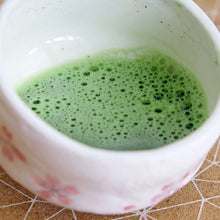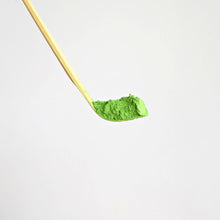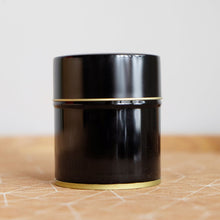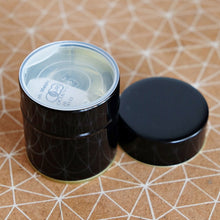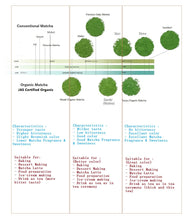
Top Grade Matcha for Matcha Tea
- Origin : Uji, Japan
- Produced and packed in Japan
- 100% Matcha, no additive
- Package : 30g with Tea Canister (Designed for Matcha, made in Japan)
- First flush handpicked Matcha
- Muslim Friendly
- Shelf life : 6-12 months
Matsu is our top grade Ceremonial Matcha from Uji, Japan. Matsu is made from first-flush young Tencha, which has very good sweetness, aroma, color and taste. Therefore Matsu is a very good candidate for Matcha tea (Koicha and Usucha).
Our ceremony matcha is cultivated and produced in Uji, Japan. Uji is one of the most popular region for its good quality Matcha. Ceremonial Matcha is produced from the tip of the tea leaves, which has the lowest astringency and the highest umami (loan word from Japanese, meaning pleasant savory sweetness taste).
The production of this Matcha is limited and only once a year. (Read what is Umami).
Frequently Asked by Our Customer
How do I prepare thin tea (thin tea) and thick tea (Koicha) ?
Usu-cha is the most famous way of tasting matcha.
- Add 1.5g - 2g of matcha powder (about 2 scoop with matcha scoop) into 60ml of water (about 70 degree celcius).
- Whisk matcha with bamboo whisk until frothed.
- When matcha covered with foam, it taste milder. Koicha is 4 times thicker than Usu-cha. In a formal tea ceremony,
Koicha is served after the Kaiseki meal.
- Add 3-4g (about 4 scoop with matcha scoop) into 30ml of hot water (70 degree celcius).
- Whisk matcha until it mixed with water evenly.
Read article on Prepare Matcha Koicha and Usucha
Does this Ceremony Grade Matcha taste bitter?
Our top grade ceremony matcha has almost no taste of bitterness. It's produced from the buds of Tencha which has the highest level of umami (loan word from Japanese, meaning pleasant savory taste). No bitterness doesn't mean no matcha taste, this is misconception. It has good amount of vegetal matcha taste but low bitterness.
Can I use this matcha for cooking or make dessert?
It can be used for dessert preparation. It has low in bitterness. If you are looking for high bitterness Matcha, we suggest culinary grade Matcha.
Does Matcha has caffeine?
Yes, matcha has caffeine. However the impact is different compare to other caffeine drinks such as coffee. Caffeine in coffee is absorbed into blood much faster and create energy spikes. Caffeine in matcha are absorbed slowly (up to 8 hours). Therefore, the negative impact from coffee caffeine is not related to caffeine in matcha.
What is the expiry date?
Just like many other tea products, Matcha does not get "spoiled", you can still consume it after years. But matcha does have a "Best before" date. It's to indicate the date matcha has the best taste. Our matcha has >6 months of "best before" date starting from date of purchase (Not opened). But once the packaging is opened, please consume it within few weeks to enjoy the best taste.






